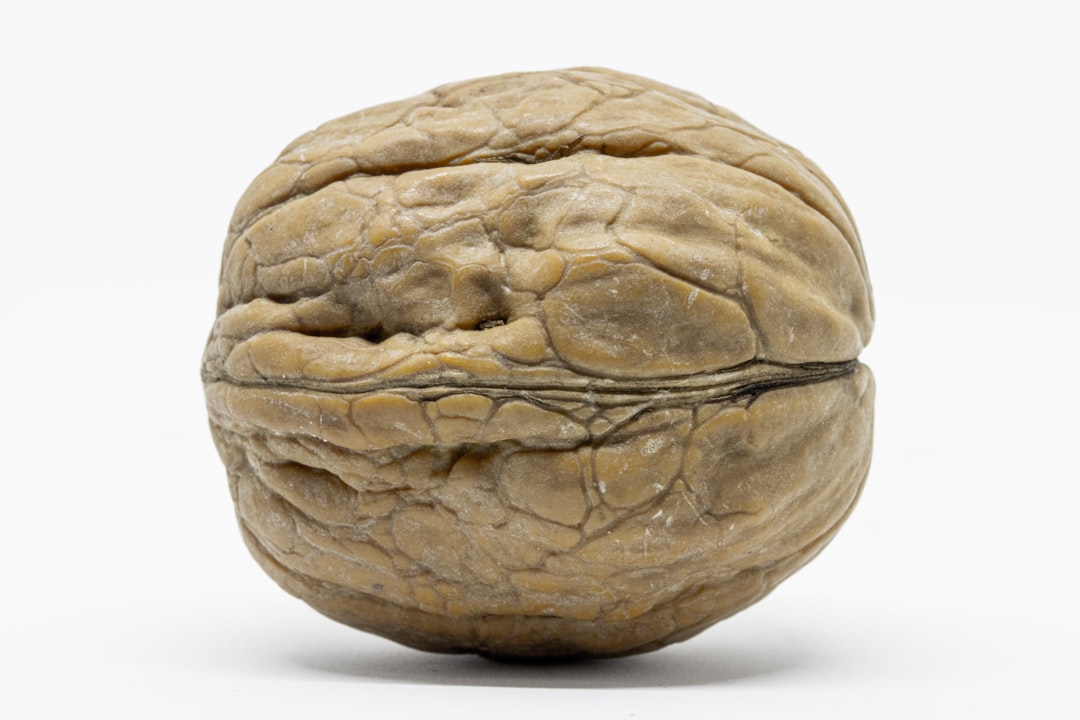In recent years, you may have noticed a surge in the popularity of brain supplements, often marketed as cognitive enhancers or nootropics. These products promise to boost memory, improve focus, and enhance overall mental performance. As the demands of modern life increase, many individuals are seeking ways to optimize their cognitive abilities, leading to a burgeoning market filled with various formulations and claims.
The allure of achieving peak mental performance has captivated students, professionals, and even older adults looking to maintain their cognitive health. This growing trend raises important questions about the efficacy and safety of these supplements. With so many options available, it can be overwhelming to navigate the landscape of brain health products.
Understanding the science behind these supplements, their ingredients, and how they interact with your body is crucial for making informed decisions.
Key Takeaways
- The growing trend of brain supplements highlights the increasing interest in enhancing cognitive function and mental performance.
- Understanding brain function is crucial for selecting the right brain supplements and maximizing their effectiveness.
- While some ingredients in brain supplements have scientific backing, others may not be as effective in improving brain function.
- Common ingredients like omega-3 fatty acids and caffeine have been shown to have positive effects on brain function, while others may have limited evidence supporting their effectiveness.
- Bioavailability plays a key role in the absorption and effectiveness of brain supplements, making it important to consider when choosing a supplement.
The Importance of Understanding Brain Function
To appreciate the role of brain supplements, it is essential to have a foundational understanding of how your brain functions. Your brain is a complex organ responsible for processing information, regulating emotions, and controlling bodily functions. It operates through intricate networks of neurons that communicate via neurotransmitters.
These chemical messengers play a vital role in mood regulation, memory formation, and cognitive processing. By understanding these mechanisms, you can better grasp how certain supplements may influence your cognitive abilities. Moreover, recognizing the factors that affect brain health is equally important.
Age, genetics, lifestyle choices, and environmental influences all contribute to your cognitive function. For instance, as you age, neuroplasticity—the brain’s ability to adapt and reorganize—may decline, leading to potential cognitive impairments. By understanding these dynamics, you can make more informed choices about whether brain supplements are a suitable option for you and how they might fit into your overall strategy for maintaining cognitive health.
The Science of Brain Supplements: What Works and What Doesn’t

When exploring the science behind brain supplements, it is crucial to differentiate between those that have substantial research backing their claims and those that are merely based on anecdotal evidence. Some ingredients have been studied extensively and show promise in enhancing cognitive function. For example, compounds like omega-3 fatty acids and certain B vitamins have been linked to improved brain health and function.
However, many products on the market lack rigorous scientific validation, making it difficult to ascertain their true effectiveness. Additionally, the placebo effect can play a significant role in perceived benefits. When you believe that a supplement will enhance your cognitive abilities, you may experience improvements simply due to your expectations.
This phenomenon underscores the importance of critical thinking when evaluating brain supplements. It is essential to look for products that are backed by clinical studies and peer-reviewed research rather than relying solely on marketing claims or personal testimonials.
Common Ingredients in Brain Supplements and Their Effectiveness
| Ingredient | Effectiveness |
|---|---|
| Caffeine | Improves alertness and concentration |
| L-Theanine | Reduces stress and anxiety |
| Bacopa Monnieri | Enhances memory and cognitive function |
| Ginkgo Biloba | Improves blood circulation to the brain |
| Omega-3 fatty acids | Supports brain health and function |
As you explore various brain supplements, you’ll encounter a range of common ingredients touted for their cognitive-enhancing properties. Some of the most frequently used components include ginkgo biloba, bacopa monnieri, and rhodiola rosea. Ginkgo biloba is often marketed for its potential to improve memory and circulation in the brain.
While some studies suggest it may have mild benefits for cognitive function, results are mixed, and more research is needed to establish its efficacy definitively. Bacopa monnieri has garnered attention for its potential to enhance memory retention and reduce anxiety. Research indicates that it may improve cognitive performance over time, particularly in tasks requiring memory recall.
Rhodiola rosea is another popular ingredient known for its adaptogenic properties, which may help combat fatigue and improve mental clarity during stressful situations. However, as with any supplement, individual responses can vary significantly based on factors such as dosage and personal physiology.
The Role of Bioavailability in Brain Supplement Absorption
Bioavailability refers to the degree and rate at which an active ingredient or active moiety is absorbed and becomes available at the site of action within your body. In the context of brain supplements, understanding bioavailability is crucial because it directly impacts how effectively these compounds can exert their effects on your cognitive function. Some ingredients may be potent in theory but have low bioavailability when consumed in supplement form.
For instance, curcumin—a compound found in turmeric—has been shown to have anti-inflammatory properties that could benefit brain health. However, its bioavailability is notoriously low due to poor absorption in the digestive tract. To enhance its effectiveness, some supplements combine curcumin with piperine (found in black pepper) to improve absorption rates.
As you consider different brain supplements, pay attention to formulations that prioritize bioavailability to ensure you’re getting the most out of your investment.
The Impact of Individual Variability on Brain Supplement Efficacy

One of the most significant challenges in assessing the effectiveness of brain supplements is individual variability. Each person’s genetic makeup, lifestyle choices, and overall health can influence how they respond to specific ingredients. For example, some individuals may metabolize certain compounds more efficiently than others, leading to varying degrees of effectiveness.
Factors such as age, sex, diet, and existing medical conditions can also play a role in how well a supplement works for you. Moreover, psychological factors can impact your experience with brain supplements. Your mindset and expectations can shape how you perceive their effects.
If you approach a supplement with skepticism or doubt, you may not experience the same benefits as someone who is optimistic about its potential. This variability underscores the importance of personalized approaches to cognitive enhancement rather than relying on one-size-fits-all solutions.
The Influence of Lifestyle Factors on Brain Supplement Results
Your lifestyle choices significantly influence how effective brain supplements may be for you. Factors such as diet, exercise, sleep quality, and stress management all play crucial roles in supporting cognitive function. For instance, a balanced diet rich in antioxidants, healthy fats, and essential nutrients can provide a solid foundation for optimal brain health.
If you’re consuming a diet high in processed foods and sugars while relying solely on supplements for cognitive enhancement, you may not achieve the desired results. Regular physical activity has also been shown to promote neurogenesis—the growth of new neurons—and improve overall cognitive function. Engaging in activities that challenge your mind, such as puzzles or learning new skills, can further enhance your cognitive abilities.
When considering brain supplements, it’s essential to view them as part of a holistic approach to brain health rather than a standalone solution.
The Dangers of Misleading Marketing Claims in the Brain Supplement Industry
As you navigate the world of brain supplements, it’s crucial to be aware of misleading marketing claims that can cloud your judgment. The supplement industry is rife with products that make bold assertions about their ability to enhance cognitive function without sufficient scientific backing. Terms like “miracle cure” or “instant focus” can be enticing but often lack credibility.
These misleading claims can lead consumers like you to invest time and money into products that may not deliver on their promises. It’s essential to approach marketing materials with skepticism and conduct thorough research before trying any new supplement. Look for transparency regarding ingredient sourcing, clinical studies supporting efficacy claims, and third-party testing for quality assurance.
The Need for Regulation and Transparency in the Brain Supplement Market
The lack of regulation in the dietary supplement industry poses significant challenges for consumers seeking safe and effective brain supplements. Unlike pharmaceuticals, which undergo rigorous testing and approval processes before reaching the market, many supplements are released with minimal oversight. This lack of regulation can result in products that contain unverified ingredients or inaccurate labeling.
As a consumer, advocating for greater transparency and regulation within the industry is essential for ensuring your safety and well-being. Look for brands that prioritize quality control measures and provide clear information about their sourcing practices and manufacturing processes. Supporting companies committed to transparency can help drive positive change within the industry while protecting your interests as a consumer.
Alternative Approaches to Enhancing Brain Function
While brain supplements may offer potential benefits for some individuals, there are alternative approaches to enhancing cognitive function that should not be overlooked. Engaging in regular physical exercise has been shown to improve blood flow to the brain and promote neuroplasticity—key factors in maintaining cognitive health as you age. Additionally, mindfulness practices such as meditation can enhance focus and reduce stress levels.
Furthermore, prioritizing quality sleep is crucial for optimal brain function. Sleep plays a vital role in memory consolidation and overall cognitive performance. Establishing healthy sleep habits can significantly impact your mental clarity and focus throughout the day.
By incorporating these lifestyle changes alongside or instead of supplements, you may find more sustainable ways to enhance your cognitive abilities.
Navigating the Complex World of Brain Supplements
As you navigate the complex world of brain supplements, it’s essential to approach this topic with curiosity and caution. While there are promising ingredients backed by research that may support cognitive function, individual variability and lifestyle factors play significant roles in determining their effectiveness for you. By understanding the science behind these supplements and being aware of misleading marketing claims, you can make informed decisions about which products align with your goals.
Ultimately, enhancing your cognitive abilities involves a multifaceted approach that includes healthy lifestyle choices alongside any supplementation you may choose to pursue. By prioritizing nutrition, exercise, sleep quality, and mental well-being, you can create a solid foundation for optimal brain health—one that may complement any brain supplement regimen you decide to explore.
Most brain supplements fail to deliver on their promises due to a lack of rigorous scientific evidence supporting their efficacy. Many of these products are marketed with bold claims, yet they often lack the necessary clinical trials to substantiate their benefits. Additionally, the brain is a highly complex organ, and the simplistic approach of many supplements fails to address the intricate biochemical processes involved in cognitive function. For a deeper understanding of why these supplements often fall short, you can read a related article on this topic by visiting Explore Senior Health. This article delves into the common pitfalls of brain supplements and offers insights into what consumers should look for when considering these products.
WATCH THIS! 🧠 Stop Senior Moments: The Golden Spice That Reverses Memory Loss
FAQs
What are brain supplements?
Brain supplements, also known as nootropics, are natural or synthetic substances that are claimed to improve cognitive function, memory, creativity, or motivation in healthy individuals.
Why do most brain supplements fail?
Most brain supplements fail to live up to their claims due to a lack of scientific evidence supporting their effectiveness. Many products are marketed with exaggerated or unsubstantiated claims, and the quality and purity of the ingredients can vary widely.
What should consumers look for in a brain supplement?
Consumers should look for brain supplements that have been rigorously tested in clinical trials and have scientific evidence supporting their claims. It’s also important to look for products that are manufactured by reputable companies and have transparent ingredient lists.
Are there any brain supplements that have been proven to be effective?
There are a few brain supplements that have been shown to have some cognitive benefits in clinical studies, such as omega-3 fatty acids, caffeine, and certain vitamins and minerals. However, it’s important to consult with a healthcare professional before starting any new supplement regimen.
What are some common misconceptions about brain supplements?
One common misconception is that all brain supplements are safe and effective, when in reality, many products have not been adequately tested for safety and efficacy. Another misconception is that brain supplements can replace healthy lifestyle habits, such as exercise, proper nutrition, and adequate sleep.
